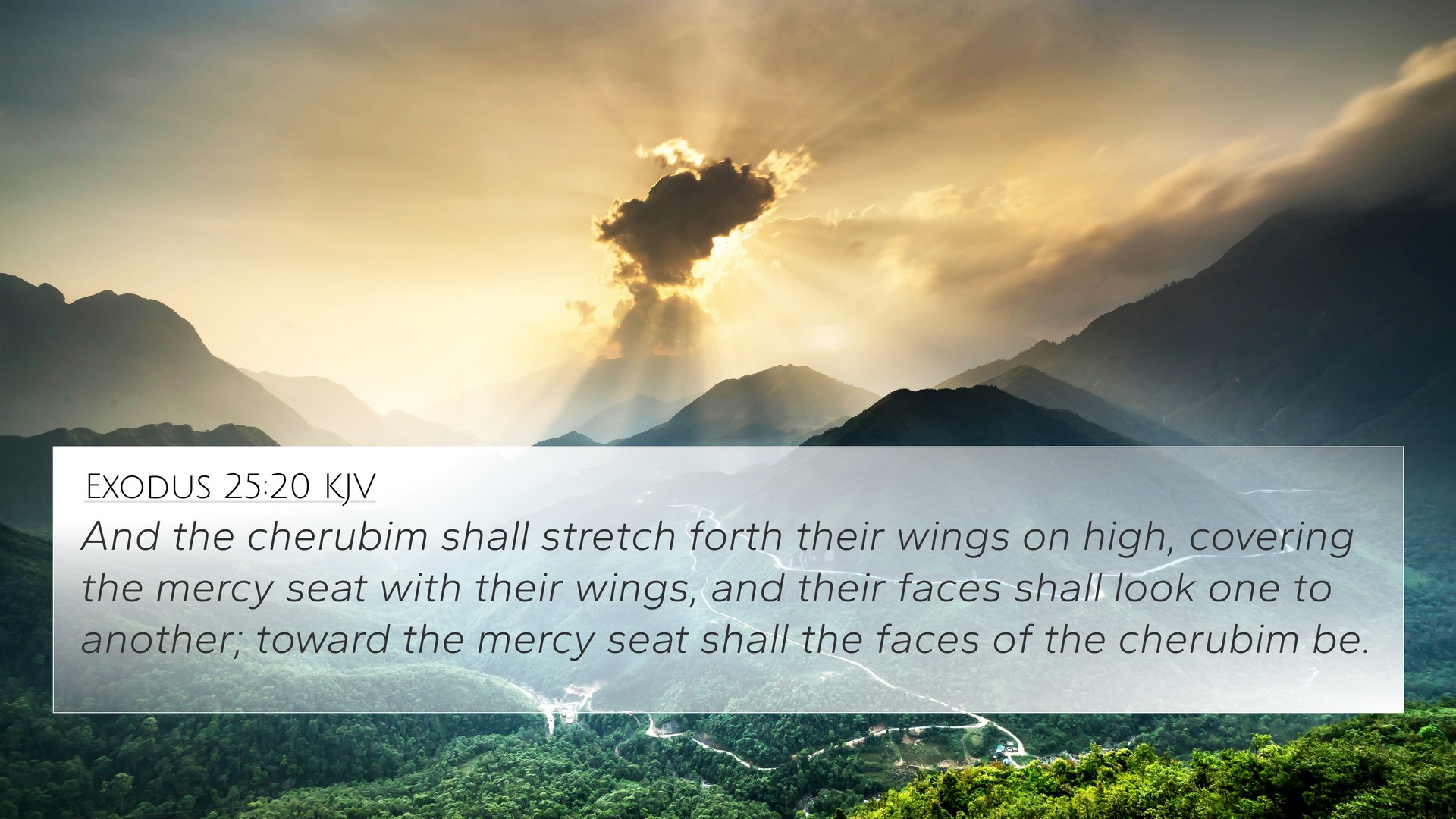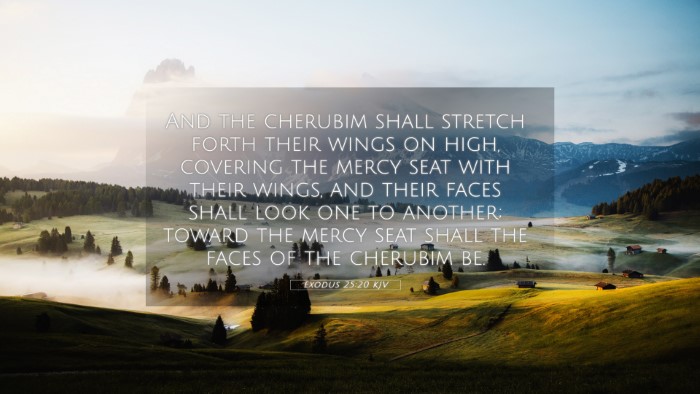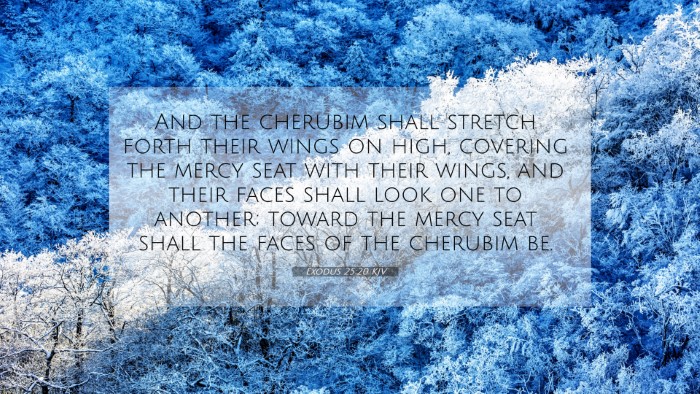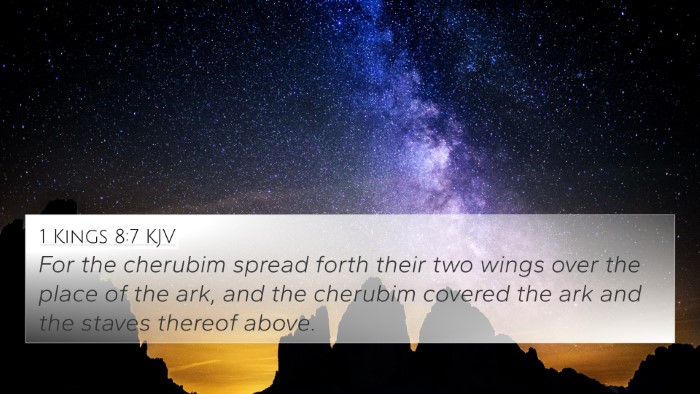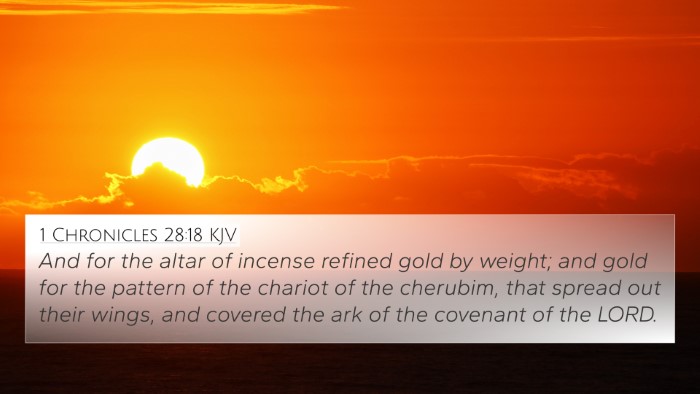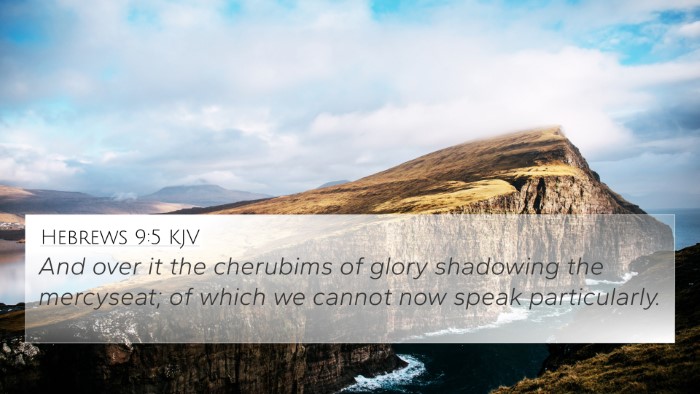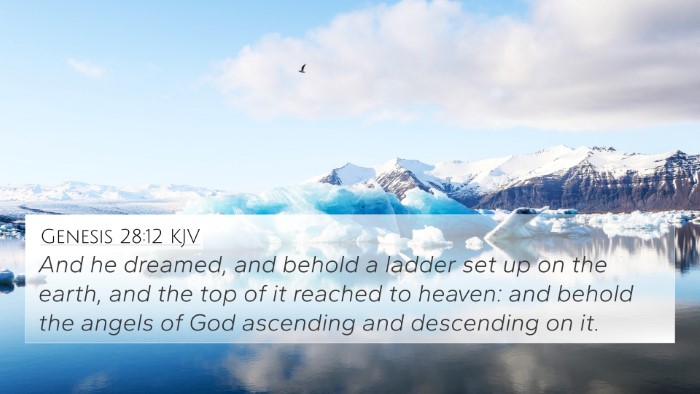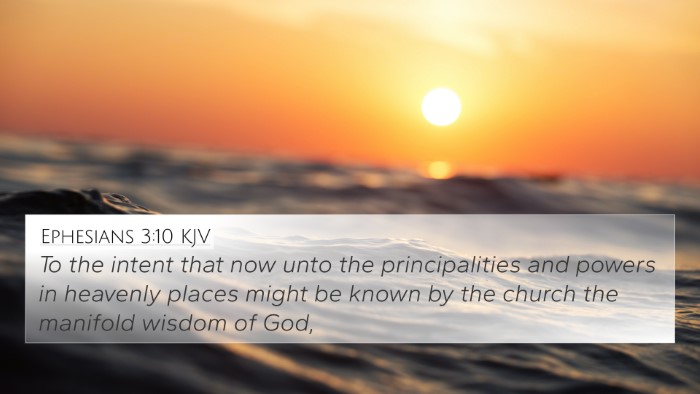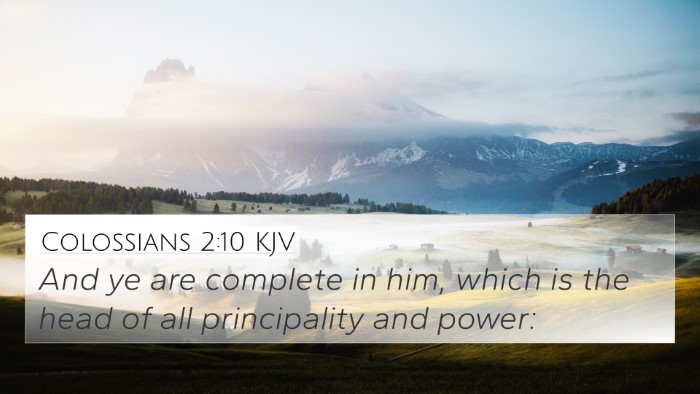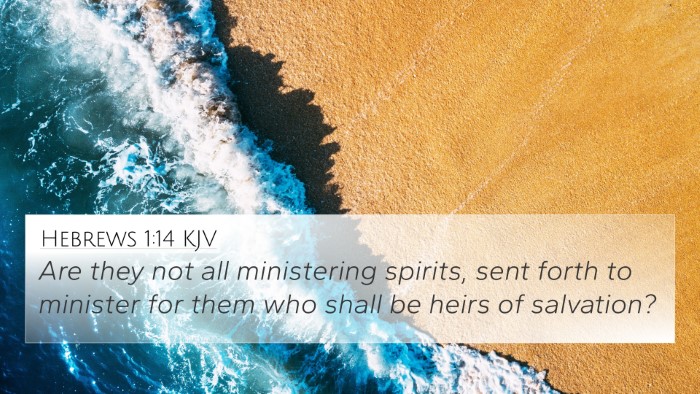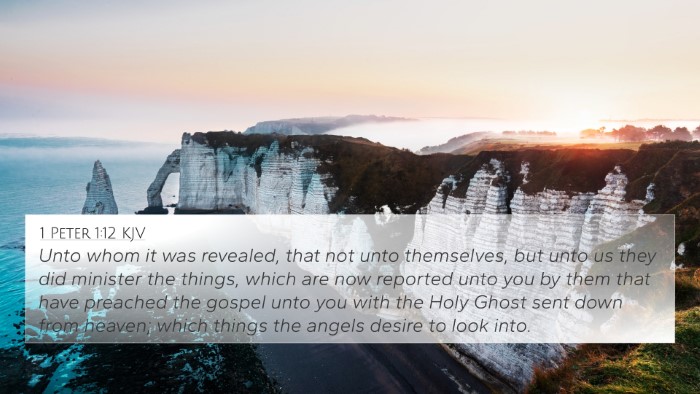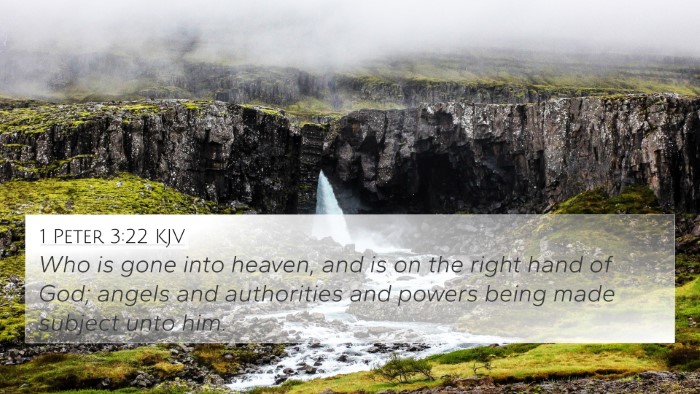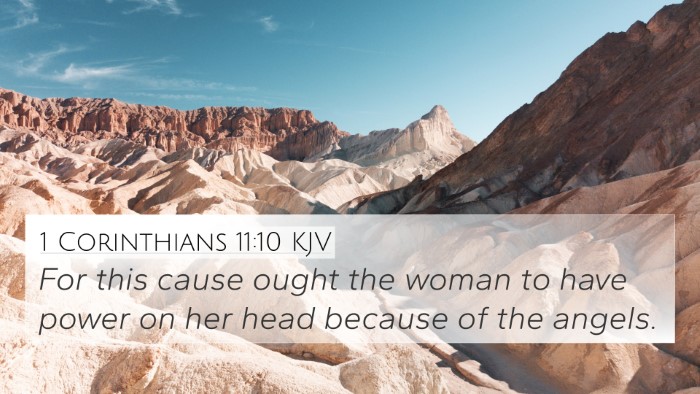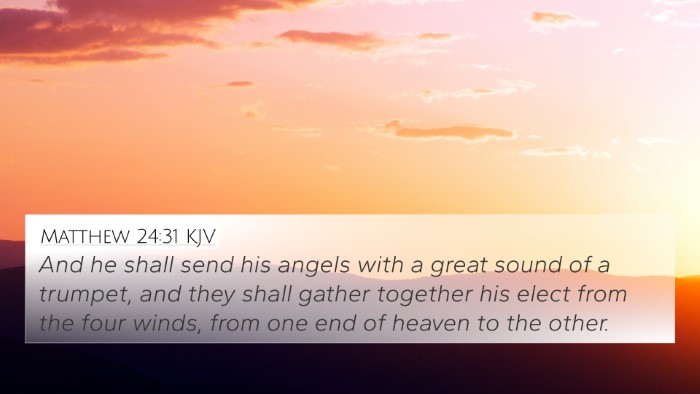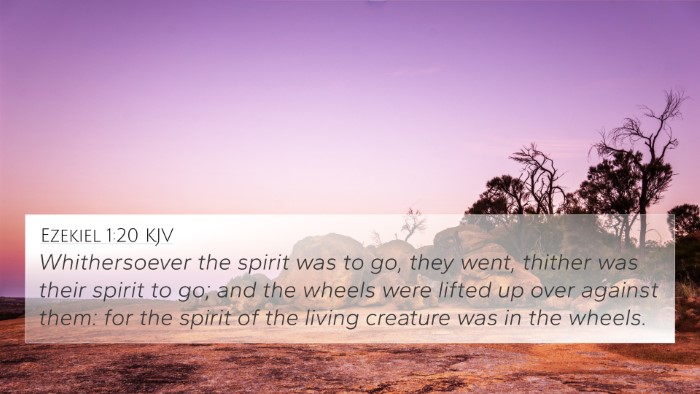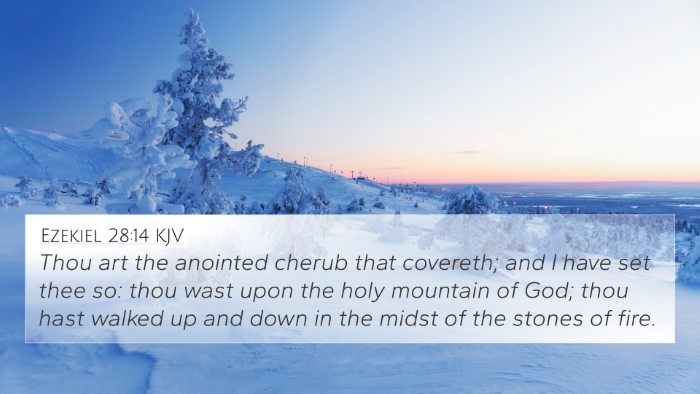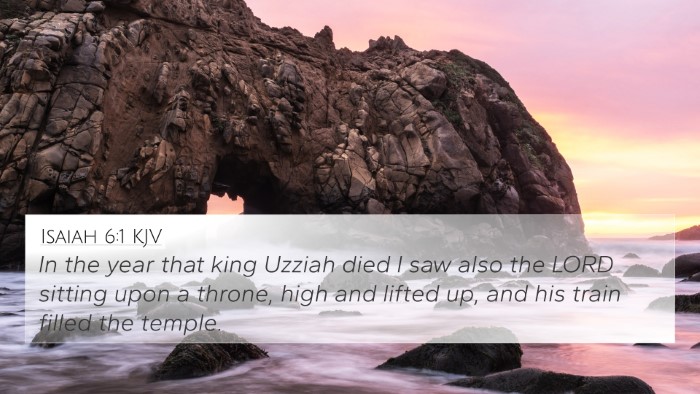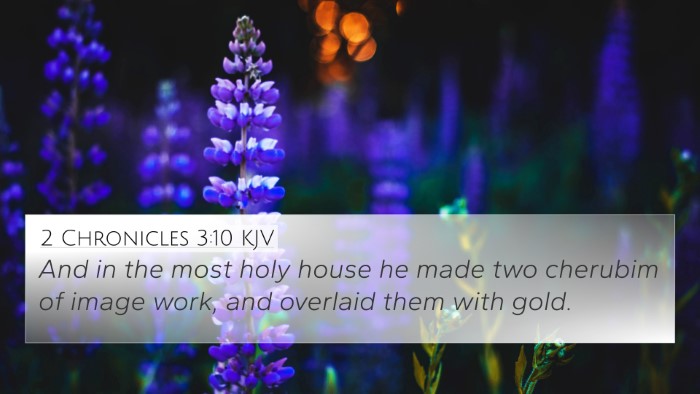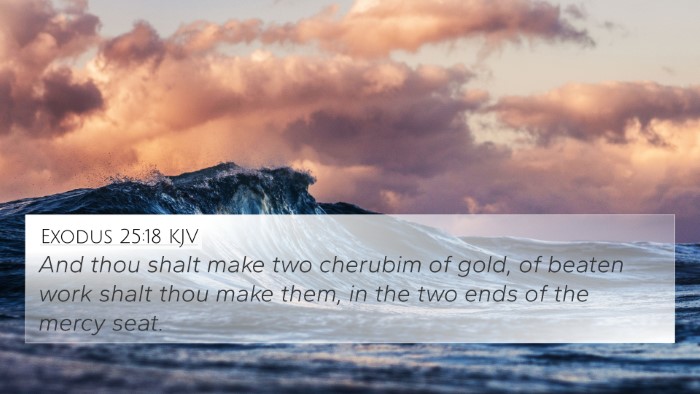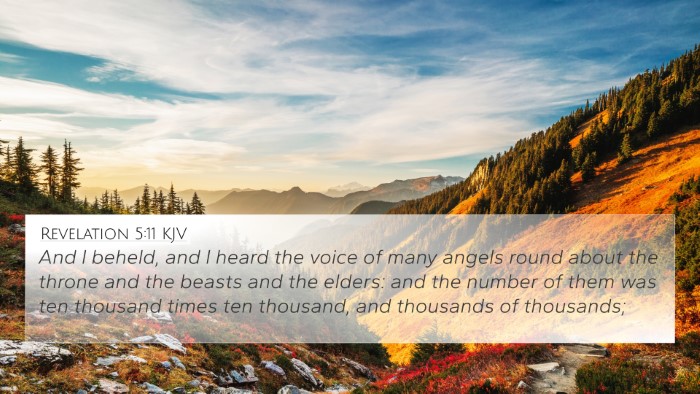Understanding Exodus 25:20
Exodus 25:20: "And the cherubim shall stretch forth their wings on high, covering the mercy seat with their wings, and their faces shall look one to another; toward the mercy seat shall the faces of the cherubim be." This verse describes the design of the cherubim above the Ark of the Covenant.
Summary of Meaning
The verse emphasizes the divine presence and the sacredness of the space where God meets His people. The imagery of the cherubim, with their wings outstretched, illustrates protection and reverence towards the mercy seat, which symbolizes the throne of God in the earthly sanctuary.
Commentary Insights
-
Matthew Henry:
Henry notes that the cherubim represent the angels who stand in the presence of God, signifying their ministerial roles. Their wings covering the mercy seat demonstrate God's protective nature and the sanctity of His dwelling place.
-
Albert Barnes:
Barnes highlights that the facing of the cherubim toward one another symbolizes mutual acknowledgment of God's glory. This mirrors the relationship between God and humanity, where divine love and mercy are central.
-
Adam Clarke:
Clarke elaborates on the importance of the mercy seat as a place of atonement. The cherubim’s presence indicates that access to God is through mercy and grace, inviting a reflection on the New Testament's fulfillment of this theme through Christ.
Related Bible Cross-References
Exodus 25:20 connects with several other verses that illustrate similar themes of divine protection, presence, and mercy:
- Hebrews 9:5: "And over it the cherubims of glory shadowing the mercyseat; of which we cannot now speak particularly." This verse points to the symbolic significance of the cherubim and the mercy seat in the New Covenant.
- Psalm 80:1: "Give ear, O Shepherd of Israel, thou that leadest Joseph like a flock; thou that dwellest between the cherubims, shine forth." The Psalmist invokes God’s presence entreated among the cherubim.
- Isaiah 37:16: "O LORD of hosts, God of Israel, that dwellest between the cherubims, thou art the God, even thou alone, of all the kingdoms of the earth; thou hast made heaven and earth." This verse approaches the endearment and omnipotence of God beside the cherubim.
- Numbers 7:89: "And when Moses went into the tabernacle of the congregation to speak with him, then he heard the voice of one speaking unto him from off the mercy seat that was upon the ark of testimony, from between the two cherubims: and he spake unto him." This reinforces God's communication through the symbols of the cherubim and mercy seat.
- Revelation 4:6-8: "And before the throne there was a sea of glass like unto crystal: and in the midst of the throne and round about the throne were four beasts full of eyes before and behind..." This passage connects the heavenly worship of God with the concept of cherubim and their protective role.
- Ezekiel 10:1: "Then I looked, and behold, in the firmament that was above the head of the cherubims there appeared over them as it were a sapphire stone, as the appearance of the likeness of a throne." This adds depth to their symbolism related to the divine authority and presence.
- 1 Peter 1:12: "Unto whom it was revealed, that not unto themselves, but unto us they did minister the things, which are now reported unto you by them that have preached the gospel unto you with the Holy Ghost sent down from heaven; which things the angels desire to look into." This illustrates the ongoing ministerial role of angels in relation to God’s redemptive plan.
- Hebrews 4:16: "Let us therefore come boldly unto the throne of grace, that we may obtain mercy, and find grace to help in time of need." This New Testament connection shows the culmination of the mercy seat’s significance in our access to God through Christ.
Thematic Bible Verse Connections
Exodus 25:20 is rich in thematic connections throughout the Bible, particularly regarding:
- The Mercy of God: Illustrated in both the Old and New Testaments, where God's mercy provides access and forgiveness.
- The Role of Angels: The study of cherubim as heavenly beings tasked with protecting and glorifying God's holiness.
- Divine Presence: The connection of God's presence in worship settings, both in the tabernacle and the heavenly realm.
- Atonement: The concept of the mercy seat as a footprint of Christ's ultimate sacrifice.
Conclusion
In summary, Exodus 25:20 provides profound insights into the nature of God’s mercy and the reverence associated with His presence. By studying this verse and its connections with other scriptures, believers can deepen their understanding of God's desire for relationship, through the symbols of the old covenant, which beautifully prefigure the grace offered in the New Testament.
SEO Keywords
This content serves those interested in Bible verse cross-references, finding connections between Bible verses, and engaging in comparative Bible verse analysis. Tools for Bible cross-referencing and a Bible cross-reference guide can enhance your study of scriptures like Exodus 25:20, offering insights into thematic Bible verse connections and enhancing your understanding of scriptural cross-referencing.
